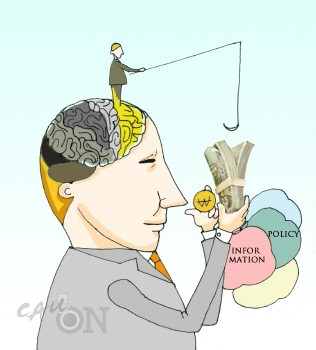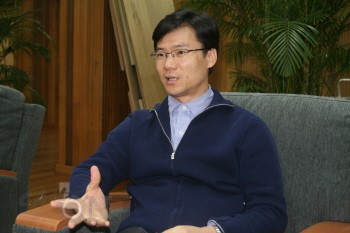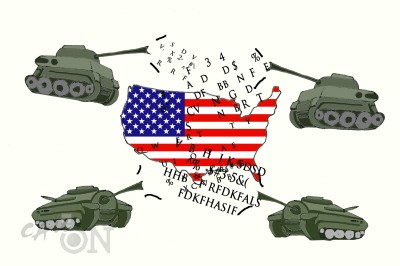
A think tank (also called a policy institute) is “an organization, institute, corporation, or group that conducts research and engages in advocacy in areas such as social policy, political strategy, economy, science or technology issues, industrial or business policies, or military advice.” (The American Heritage Dictionary) It is an enterprise or research institute with invested capital in human intelligence. There are ‘Think Tanks’ in Korea. They are up to date institutions, but are not in action. However, in America, think tanks influence politics and economics.
After World War II, think tanks rapidly grew in America. The biggest fully functioning Think Tank is the RAND Corporation, which was named after an initial letter of Research & Development in 1948. Established by a fund from the air force after it developed an artificial satellite system, the present RAND Corporation has an annual income of 120 million dollars per year, and 80% of that income is from specific field research, which is contracted with the Federal Government. There are Think Tanks supported and operated by governments, private persons, enterprises, citizens and others.

The U.S. has hundreds of Think Tanks and they have certain characteristics, such as conservatism, progressive, and/or middle of the road. Conservative Think Tanks are the Heritage Foundation, RAND, and AEI. These conservative Think Tanks often help support presidents affiliated with the Republican Party like Bush and Reagan. The Heritage Foundation is proud of their work with the conservatives and its practices and policies are conservative. Progressive Think Tanks include the Brookings Institute and the Carnegie Foundation that prefer multilateral policies that utilize conversation and compromise. They listen to problems of minority races, and these central Think Tanks are owned or funded by a university or a family foundation.
The U.S is not the only country to have Think Tanks. Europe and Japan also have them. Unlike these countries, Korean Think Tanks are not in action.
CAH: Why domestic enterprises do not have Think Tank?

Prof: Korea does not have an American style Think Tank, but has many Korean styles Think Tanks. Think Tanks in Korea seem to promote national development by engaging various people of knowledge. Specific people manage the nation, but management of a nation is open to everyone since the beginning of the twentieth century. Everyone can participate in the management of the nation. Think Tanks serve as a momentum by various people engaged in knowledge. The American Think Tank has diverse people engaged in knowledge, who are intermediaries to interconnect national management organizations, for example, a research institute, an academic and another. Korea has suitable Think Tank situations, but these Think Tanks have not met contemporary needs. The Samsung Economic Research Institute has possible Think Tanks, but these do not build a bridge between the government and the people. Moreover, Think Tanks are fro short development, unlike the American ones and we do not combine with political circles.
CAH: Will Korea have more Think Tank activity in the future?
Prof: To begin with, let us think about the American style Think Tanks and how they could fit Korea’s culture, and cultivate its men of talent to be efficient. First, we should strengthen the minds of our specialist, extend the knowledge of industries and connect citizens and political leaders. These ways will guide us in the path of righteousness.
CAH: What are some successful Think Tank cases from abroad?
Prof: Successful Think Tank cases from abroad are Think Tanks of America, Europe and Japan. Think Tanks of America are linked with various powers of politics, who participate in activities that are executed directly in the American society. The market of knowledge is open to all people at all times for example, the Heritage Foundation, AEI, and the Brookings Institute. Think Tanks of Europe have a strong sense of social responsibility. In Germany, Think Tanks present desirable social aspects to citizens, and enlighten the public, for example the Konard-Adenauer-Stiftung Foundation. Think Tanks of Japan are made to support enterprises. The enterprises can access information from abroad and make predictions for the future for example the Nomura Research Institute.
CAH: What can all the countries do to make active Think Tanks?
Prof: Globalization has various sides. All of us are adapting to the same rules. Every country should discover and develop knowledge and use it, because Think Tanks are an important part. If we make more research and provide investments, we get better policies. So, many countries should make more Think Tanks to their development.

American style Think Tanks might not fit Korea. However, we accept and respect the success of American Think Tanks. The Think Tank system will take many years to settle down. It needs concession and sacrifices. Moreover, it needs moral growth. It is an unknown quantity for the reason that Korean political parties are imbued with political and financial powers. Like this, political parties need to make an effort as well as the citizens to convert their mind. When we have this condition, Korean Think Tanks will make a great contribution to develop, and it will be a starting point of an independent Think Tank.
The world should make changes and concessions in the politics with a lot of information. Citizens also have to participate in change to maintain impartiality. After that, Think Tanks will be active in the world by various specialists. From now on, if a country can put a lot of investment and utilize Think Tanks, they will make big developments.

